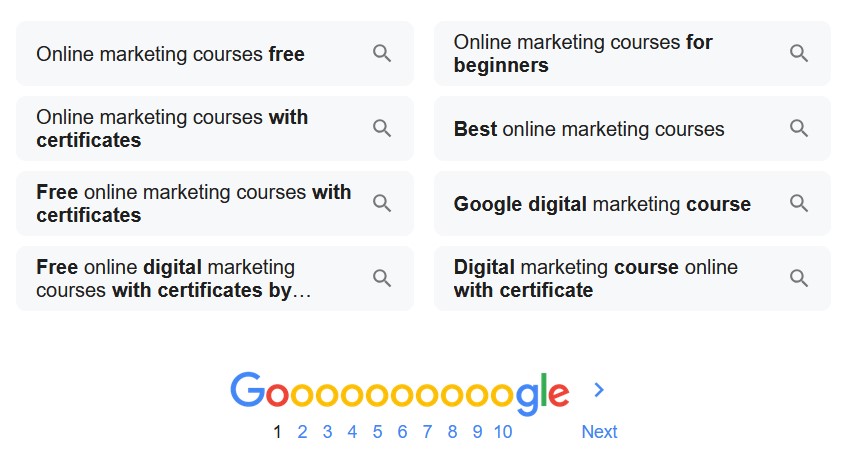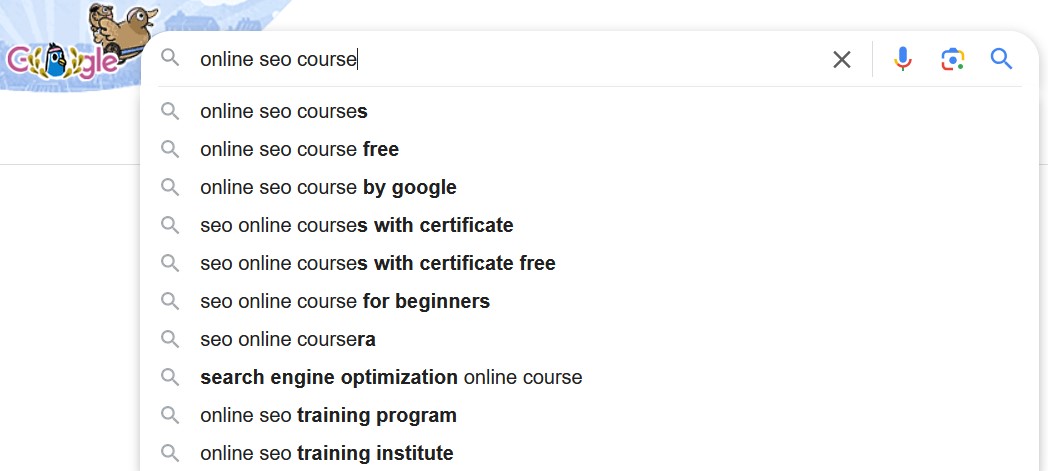
If you aren’t new to search engine optimization, you must know that optimizing your content for the most searched queries is pivotal for your rankings. The primary keywords you target on your site are what help you get in front of your audience and rank high. But are you using secondary keywords as well?
Secondary keywords tend to be often overlooked. Many site owners and marketers don’t recognize their full potential. The result? You might be missing out on a wealth of ranking opportunities. Moreover, by neglecting secondary keywords, you might also be overcomplicating your strategy and increasing its cost.
If you want to minimize the missed opportunities and ensure scalable growth for your business instead, you have to start using secondary keywords to your benefit. In this article, we are going to tell you why they matter and how to find and integrate them effectively to attain your goals!
What Are Secondary Keywords?

A primary keyword is the central search query that you target for a particular page. In a nutshell, it’s a term that you know your prospects are searching for and that you want to rank for in order to drive target traffic.
A secondary keyword, on the other hand, is a synonym or variation (including long-tail variations) of your primary keyword or subtopic that is closely related to it.
Let’s take a look at some examples to see the difference:
- Primary keyword
Online SEO courses
- Secondary keywords
Digital SEO certification
Online SEO training for beginners
SEO Benefits of Using Secondary Keywords

Although they are often overlooked, secondary keywords are no less important than your main queries. They help you cover a broader range of topics in your content while also giving search engines a better understanding of your site and improving rankings across a myriad of queries.
Although we’ve already covered a few top perks of integrating these queries into your strategy, you must know that the real benefits of using them go far deeper than that.
Let’s explore the most significant advantages in detail:
- Improved topical relevance—These days, the value, depth, and quality of your content matter more than ever. Neither search engines nor users appreciate superficial content that only discloses a tiny aspect of a topic. Secondary keywords enable you to add more layers to your topic, addressing popular user queries and, hence, better meeting their expectations.
- Keyword diversification—No matter how popular and strong your primary keyword is, inserting it in the text too many times may seem quite intrusive or even annoying to users’ gaze. However, diversifying them with related terms can help improve the look of your content.
- Natural guiding through the content—When creating in-depth content that covers many facets of the topic, using synonyms and variations of your central query can help you guide readers through the topic more naturally.
- Making your content strategy more cost-efficient and straightforward—When you don’t use secondary keywords, you have to create standalone content and additional pages for every query you want to target. Needless to say, it’s not very efficient in terms of time and cost. With related queries, you can target multiple terms at once without creating too many pages.
- An opportunity to tap into local queries—Local SEO is pivotal to driving offline traffic to your store or office. Yet, targeting local search terms often requires creating separate pages and content. Unless, of course, you integrate local queries more naturally in the form of secondary keywords.
- More organic traffic and conversions—Last but not least, using related queries can help you multiply the amount of traffic you drive to your site. Secondary keywords might be both long-tail and short-tail. The latter tend to have large search volumes, which means that complimenting your main query with them can help you pop up in more searches and attract a great deal of traffic to your website. Respectively, it can let you boost conversions as well.
As you can see, secondary keywords are a pivotal part of your SEO. They help increase traffic and ranking, while also letting you cover a larger number of terms to rank for. Hence, it’s important that you don’t only integrate them into your strategy but also consistently track how you rank for them, similar to how you do with your primary keywords. So be sure to leverage a reliable website rank tracker, such as the one by SE Ranking, to see which positions your site holds for all types of queries and make better strategic decisions to achieve your goals.
How to Find Secondary Terms for Your Content?
Since secondary keywords might be any variations of your main query, the keyword research process for them is somewhat different. Still, it should be an integral element of your overall SEO strategy.
Here are the top four ways to conduct keyword research for this kind of query that you can use right now:
1. Check the Special SERP Sections
“People also ask” is one of Google’s rich snippet features in SERPs. It strives to guide people in the right direction in their research by suggesting to them what questions other users ask in relation to their initial request.
This feature can be of a lot of help in your keyword research. To use it, simply insert your main target term into the search bar and find out what related questions appear in the “People also ask” section.
Another feature that helps is called “People also search for.” While “People also ask” gives you a set of questions related to your request, “People also search for” gives you a set of related terms, which you can instantly include in your strategy.
Here’s what it looks like if you use the primary keyword “Online marketing courses”:

2. Leverage Google Autocomplete
Google Suggest is pretty much an autocomplete feature that analyzes your request and offers relevant query suggestions to complete it right while you’re typing it.
To use it for your SEO purposes, start inserting your main term into the bar and see what suggestions will be there.
Here’s what a list of suggestions might look like for the same request “Online SEO courses”:

3. Brainstorm Related Topics and Terms
Apart from using Google as an auxiliary tool, you can also assist your keyword research by brainstorming ideas yourself.
Basically, all you have to do is to think about different themes related to your main query. Consider your target audience and its needs to determine which questions it may come up with while engaging with your content. Additionally, think about other words that can diversify your term and different variations that you can also use and make a comprehensive keyword list for your strategy.
After brainstorming potential secondary keywords, leverage specialized SEO software to make the most out of your research process. For example, you can try Google Keyword Planner or other popular tools like SE Ranking. SEO tools will help you discover more query ideas in less time and also measure their potential by looking into their search volumes, competition, and other stats.
4. Conduct Competitor Analysis
Lastly, one more effective way to explore related terms for your primary keywords is to analyze your competitors.
To accomplish this, first, identify the key competitors in your niche and then analyze their content and website to detect what queries they use and which of them work well. You can simplify the analysis process by using specialized tools. Competitor analysis tools can give you insights into your competitors’ main stats. This information can help you learn from their experiences and refine your strategy for maximum success.
How to Integrate Your Findings?
When you identify the primary keyword to target for a particular page, you will want to integrate it into your content’s title, meta description, H1, and URL. But where do you have to integrate your secondary keywords after you find them?
Since they hold a slightly lower value than your primary keyword, secondary keywords should be allocated throughout the body of your content. Namely, you can integrate them into your subheadings (H2, H3, etc.), content paragraphs, image alt text, and FAQ sections.
If you want to make the most benefits out of every secondary keyword, here are a few core tips for integrating them right:
- Identify the goal of your page and keep it in mind. Your primary keyword can have multiple goals behind it. To match the best secondary keywords to it, be sure to clarify the page’s goal and keep it in mind.
- Understand user intent. Take time to analyze what your target audience will hope to find in a particular piece of content and carefully match your secondary keywords and content to this intent. For example, if your secondary keywords ask questions related to your topic, be sure to answer these questions explicitly in the text. This way, you will meet user needs better and, hence, earn higher rankings.
- Strive for natural and organic integration. This recommendation should apply both to your primary keyword and secondary keywords – they all should fit into the content naturally without hindering the readability and quality.
- Avoid integrating irrelevant terms. Sometimes, it can be tempting to target queries that you want to rank for, even if they don’t align with the primary keyword of your content. The tip is to avoid it at all costs. Only select related keywords that will contribute to the helpfulness of your article. This way, you can get the best outcomes.
- Keep the number of secondary keywords controlled. As you should know, keyword stuffing is considered a poor-quality SEO practice that hinders user trust and can decrease your rankings. This rule applies to secondary keywords, too. Hence, it’s recommended to keep the number of such queries under 20 per page.
- Optimise your internal links. Don’t hesitate to leverage your secondary keywords for link optimization. Using them as anchor text for internal linking can help you improve site navigation and, at the same time, help Google understand your site better and, respectively, index and rank it more accurately.
Boost Your SEO Traffic with Secondary Keywords
Secondary keywords play a significant role in SEO by helping you to accomplish multiple goals simultaneously. Namely, these queries enable you to deepen your content and better match user needs. Also, it can help search engines understand your pages better. Most importantly, secondary keywords can help you rank higher for more search terms and drive lots of traffic and conversions.
Since secondary keywords are quite different from the main ones, integrating them into your strategy for the first time can be quite challenging. But not anymore.
After reading this article, you have everything you need to take your SEO to the next level. Now you know how to conduct effective keyword research and find winning secondary keywords for your strategy. Also, you know how to integrate these queries into your content efficiently. Start using this knowledge now to achieve your goals faster!

Speak with our Keyword Research Expert
Got a quick question about growing sales of your business
with primary and secondary keywords? We can help.
Speak to one of our experts today on 01702 668207 or send us a message.
